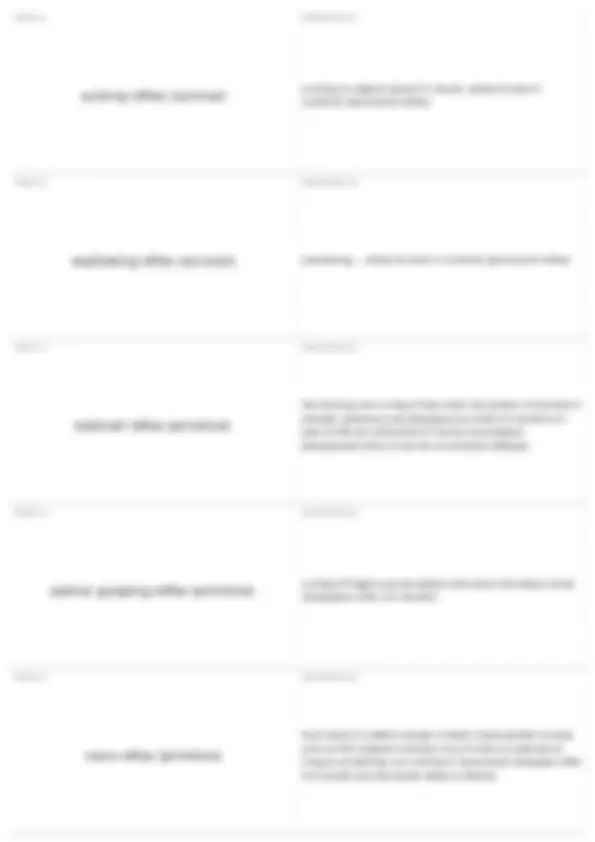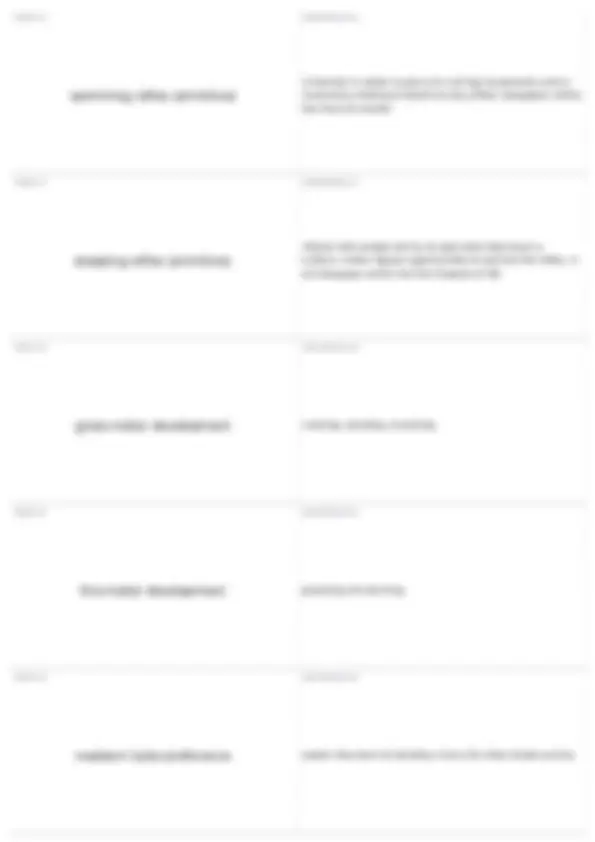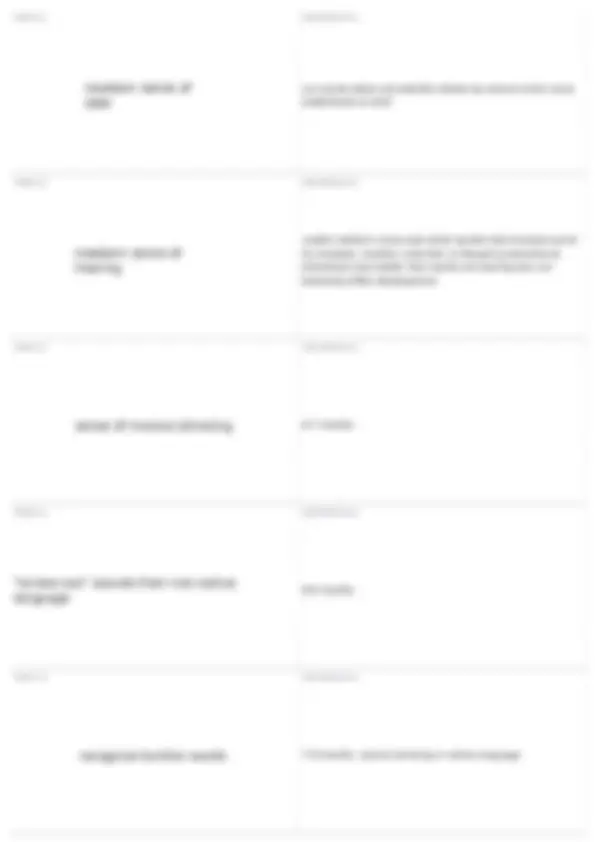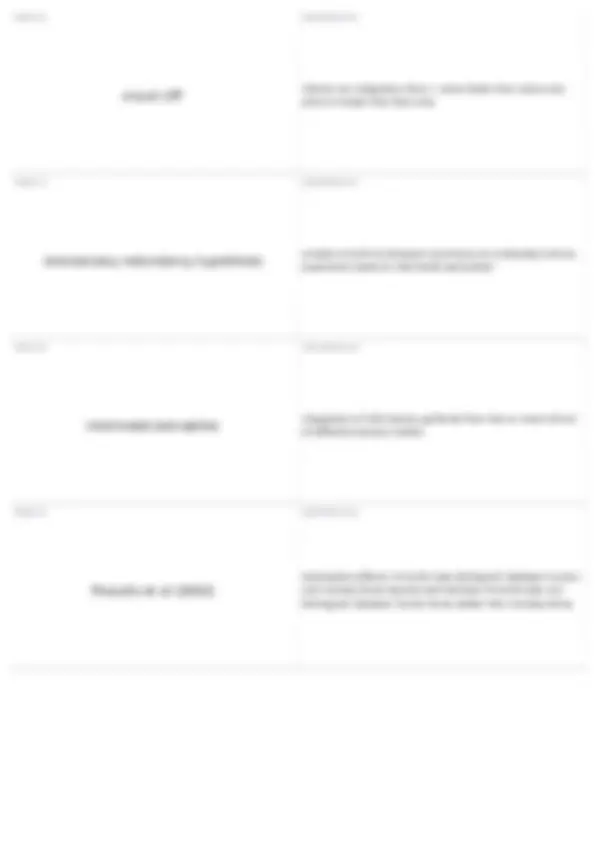






Study with the several resources on Docsity

Earn points by helping other students or get them with a premium plan


Prepare for your exams
Study with the several resources on Docsity

Earn points to download
Earn points by helping other students or get them with a premium plan
Community
Ask the community for help and clear up your study doubts
Discover the best universities in your country according to Docsity users
Free resources
Download our free guides on studying techniques, anxiety management strategies, and thesis advice from Docsity tutors
Definitions and descriptions of various reflexes, senses, and motor skills that develop in infants from birth to the first year of life. Topics include regular sleep, irregular sleep, drowsiness, alert inactivity, alert activity, crying, survival reflexes, primitive reflexes, gross-motor development, fine-motor development, newborn senses, and intermodal perception. The document also touches upon the importance of visual and auditory stimuli in infant development.
Typology: Quizzes
1 / 8

This page cannot be seen from the preview
Don't miss anything!




